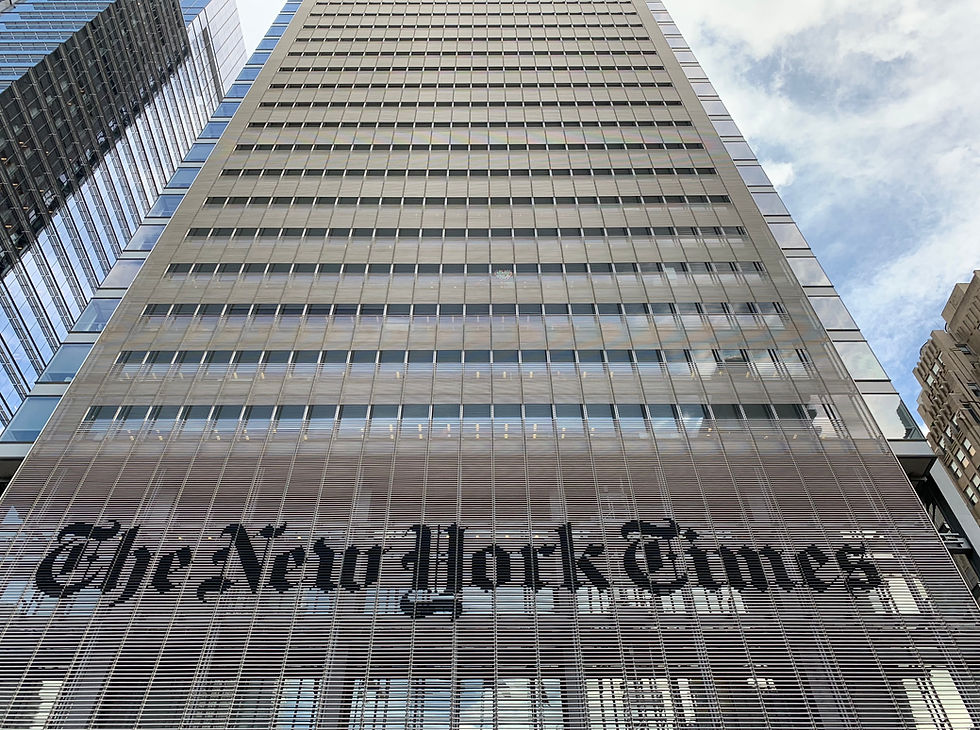Murthy v. Missouri (2024)
- Sep 24, 2025
- 4 min read
Murthy v. Missouri (2024) is one of the most significant Supreme Court cases on free speech in the digital age. The lawsuit, brought by Missouri and Louisiana along with private plaintiffs, alleged that federal agencies coerced platforms like Facebook and Twitter into removing posts about COVID-19 and elections. The Court ruled 6–3 that the plaintiffs lacked standing, vacating a lower court injunction and avoiding a decision on whether government “jawboning” of private companies amounts to unconstitutional censorship. For journalists and publishers, the case highlights ongoing uncertainty over government influence on digital platforms and its impact on free expression. The unresolved questions from Murthy are expected to shape future First Amendment litigation in an era when social media functions as the modern public square.
Murthy v. Missouri (2024): Government Pressure on Social Media and the First Amendment
In June 2024, the United States Supreme Court issued a closely watched decision in Murthy v. Missouri, a case at the intersection of free speech, digital platforms, and government influence over content moderation. While the Court ultimately dismissed the lawsuit on procedural grounds, the case has already become one of the most consequential in shaping debates about press freedom, online discourse, and the First Amendment in the digital age.
Background of the Case
The lawsuit was originally filed by the attorneys general of Missouri and Louisiana, alongside several individual plaintiffs, including physicians and commentators critical of government COVID-19 policies. They alleged that federal officials pressured social media companies such as Facebook and Twitter (now X) to suppress or downrank content on vaccines, public health, and the 2020 election. The plaintiffs argued that this pressure amounted to government-directed censorship, violating the First Amendment rights of users whose posts were removed or reduced in visibility.
The federal government countered that its communications with platforms were advisory rather than coercive, emphasizing the importance of combatting misinformation during the pandemic. Lower courts sided with the plaintiffs to varying degrees, with the Fifth Circuit Court of Appeals issuing a sweeping injunction that limited the government’s ability to contact platforms about moderation decisions.
The Supreme Court’s Ruling
In a 6–3 decision, the Supreme Court vacated the injunction, holding that the plaintiffs lacked standing. Writing for the majority, Justice Amy Coney Barrett argued that the plaintiffs failed to demonstrate a direct, traceable injury linking government actions to the suppression of their own speech. Without evidence that platforms removed content specifically because of government coercion, the Court ruled, the plaintiffs could not establish the personal harm required to pursue the case.
The Court therefore declined to resolve the broader constitutional question: when does government “persuasion” of private platforms cross the line into unconstitutional coercion?
Implications for Journalists and Free Expression
Although the case was dismissed on standing grounds, its implications are significant. The lawsuit forced unprecedented scrutiny of how federal agencies—including the White House, the Centers for Disease Control and Prevention, and the FBI—communicated with social media companies about content. Emails and testimony revealed extensive back-and-forth, raising concerns about whether government actors could exert undue influence over what information reaches the public.
For journalists, the decision highlights both the opportunities and risks of the current legal landscape. On one hand, platforms remain private companies with broad discretion over moderation, meaning reporters and outlets must navigate corporate policies that shape news distribution. On the other, the case signals that future litigation could more directly address government involvement, potentially reshaping press freedoms in digital spaces.
Broader Context
Murthy v. Missouri sits within a larger conversation about the “modern public square.” In Packingham v. North Carolina (2017), the Supreme Court recognized social media platforms as central spaces for public discourse. Yet the Court has consistently maintained that private companies are not bound by the First Amendment in the same way as government actors. The unresolved tension lies in what happens when government officials lean heavily on those companies to act.
Civil liberties advocates warn that the lack of a clear ruling leaves open the possibility of “jawboning”—the practice of informal government pressure that stops short of legal mandates but still influences private decision-making. For news organizations, this gray zone presents challenges: the potential for indirect government suppression of reporting through platform moderation.
What Comes Next
While the Court sidestepped the substantive constitutional issues, more litigation is inevitable. With digital platforms serving as primary channels for news and public debate, the line between government recommendation and coercion will remain a live question. Already, lawsuits are emerging over federal influence in areas ranging from election misinformation to foreign disinformation campaigns.
For journalists, Murthy v. Missouri underscores the fragile balance between combating harmful misinformation and preserving robust free expression. It also raises pressing questions about the independence of digital platforms that now function as gatekeepers of the news.
The case may not have resolved those questions, but it ensures they will remain at the center of legal and political debates about free speech in the digital age.
Disclaimer: The articles in the For The Writers Case Law Series are provided for educational and informational purposes only. They offer general background on landmark legal cases and their influence on free speech, civil rights, and public discourse. These materials do not constitute legal advice and should not be relied upon as such. Readers should consult a qualified attorney for guidance on specific legal questions. The views and interpretations expressed in the series are for informational use and do not necessarily represent the positions or opinions of For The Writers or its affiliates.




Comments